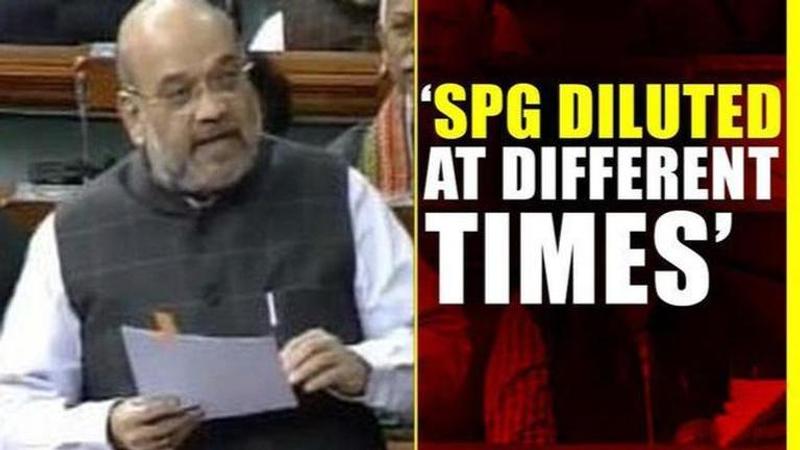Published 16:20 IST, November 27th 2019
Amit Shah explains the new SPG Act and how its 'dilution' aims to make it more efficient
Amit Shah said that the "dilution" in the SPG Act and the Bill brought by the government is in an attempt to make the specialized forces more efficient.

On Wednesday, November 27, the Lok Sabha passed the bill to amend the current SPG Act. Home Minister Amit Shah in the Lok Sabha talked about how there has been a "dilution" in the SPG Act and the Bill brought by the government to amend the Act in an attempt to make the specialized forces more efficient. Amit Shah talked about how the amendments were done keeping with the basic spirit of the Act. He also talked about how the SPG Act has constantly been amended and "diluted" over the years in order to make it more efficient with each amendment.
Amit Shah spoke specifically about its amendment back in 1988 saying the Special Protection Group Act, 1988 was brought following recommendations of an expert committee, after the 'big loss' where a prime minister and former prime minister were assassinated. "It was diluted at different times," he said.
Amit Shah explains 'SPG'
Home Minister Amit Shah explained the new SPG Act by explaining what each letter of SPG stands for. He said the word 'Special' in the Act refers to the security of prime minister. The word 'Protection' does not refer to only physical security but communications, office and is in accordance with the dignity and stature of the post.' The word 'Group' in SPG, he said, refers to specialized elite training where there is no dilution in its efficiency.
Latest amendment of SPG Act
According to the latest amendment on Wednesday, the SPG will now protect the prime minister and members of his immediate family residing with him at his official residence. It will also provide security to former prime ministers and their immediate family members staying with them at the residence allotted for a period of five years from the date on which they cease to hold the office.
Congress and the SPG row
The government had earlier decided to withdraw the SPG cover of Congress leaders Sonia Gandhi, Rahul Gandhi and Priyanka Gandhi Vadra after a security review. Following the withdrawal of SPG cover, they are now being given Z plus security by the CRPF. However, Congress has opposed the decision with its members staging protests in the ongoing session of parliament. They were included in the VVIP security list following an amendment of the SPG Act in September 1991.
Previous amendments of SPG Act
The Act was amended in 1991, 1994, 1999 and 2003 to extend SPG cover to former prime ministers and their immediate family members also, for different periods of time from the day the prime minister demitted office. It was last amended in 2003 to extend the SPG cover to former prime ministers and their immediate family members for one year from the demitting of office of the prime minister and thereafter based on the level of threat periodically assessed by security agencies.
History of the SPG Act
The SPG was set up in 1985 specifically for the security of Prime Ministers after the assassination of Indira Gandhi by her security guards a year before. After the assassination of former Prime Minister Rajiv Gandhi in 1991, the SPG Act was amended to provide security to former PMs and their families for 10 years. In 2003, the Vajpayee government amended the law again to bring down the automatic protection for 10 years to one year - or more depending on the level of threat as decided by the Centre.
(With Agency Inputs)
Updated 18:20 IST, November 27th 2019




